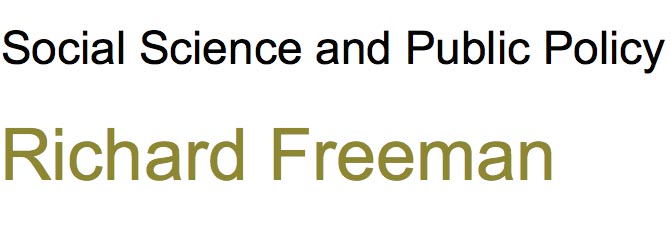Because it’s what I do, and because it helps to remind me what I’m supposed to be doing. Things drift off and fall away and sometimes drop off the edges, so I need that. But then it also begs questions, helps to interrogate exactly what social science and public policy are or should be. We need that, too. The phrase, by the way, is Marty Rein’s, and I guess I use it partly because I think he’d let me get away with it. It scans nicely, it’s got rhythm and echoes, it works.
So it’s a good line. On the one hand it’s very abstract and generic: it allows me a lot of freedom to bring a lot of different things together under one banner. The ‘social science’ bit lets me avoid disciplinary questions – or maybe lets me reintroduce them in a different way. I wouldn’t have wanted to say ‘Politics’ or ‘Sociology’ or ‘Anthropology’ alone, because I don’t think they’re very interesting on their own. Together though, they’re exhilarating.
Besides, I think we should be using all the resources of social science to understand all that government does – and not just government. We should do that not least because it’s what people who do things do, putting together stuff from all over the place.
What I’m interested in is how we come to do what we do collectively. That begs questions about the second term, ‘public policy’, and what that is or might be. My favourite conception is that of the ‘collective script’. So how do we write our collective scripts? How do we learn them, act them out? I’m less interested in any particular script or topic than in the form and process of policy making as such. So that’s why I use the other generic, ‘public policy’.
Don’t forget the ‘and’. This ‘and’ is so anodyne it becomes a question in itself. Social science and public policy aren’t simply juxtaposed. They are implicated in each other, articulated in obscure and difficult ways. I’m interested in that problem, in using social science to understand it and in taking policy opportunities to reconfigure it. How can we do both social science and public policy differently?
